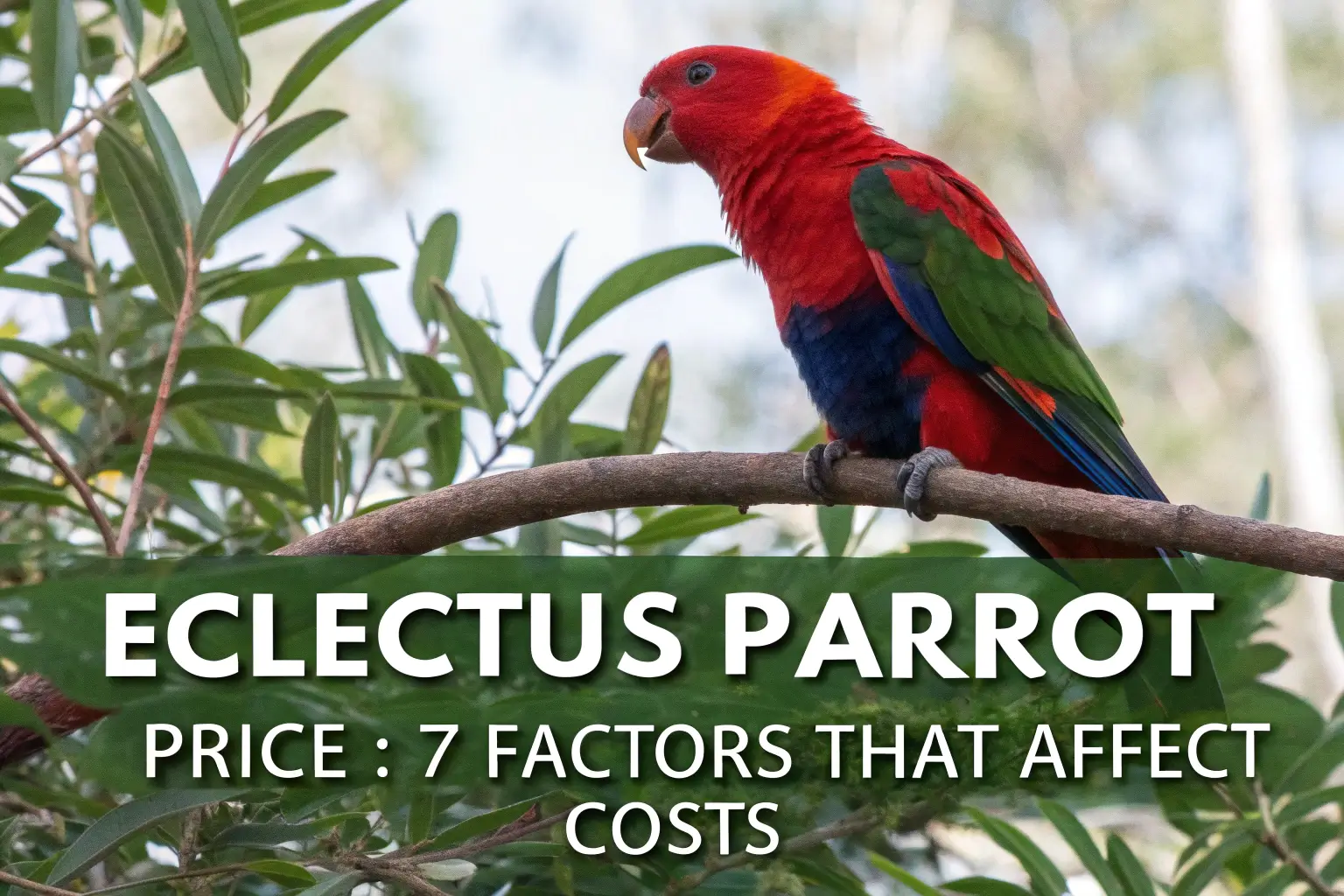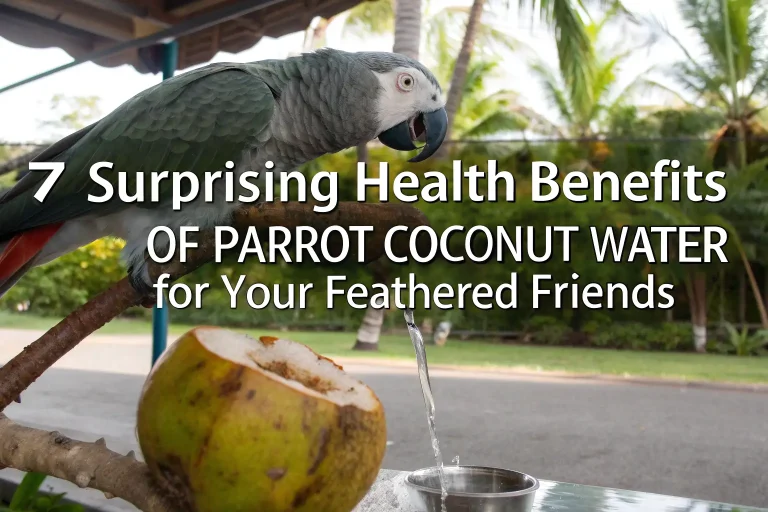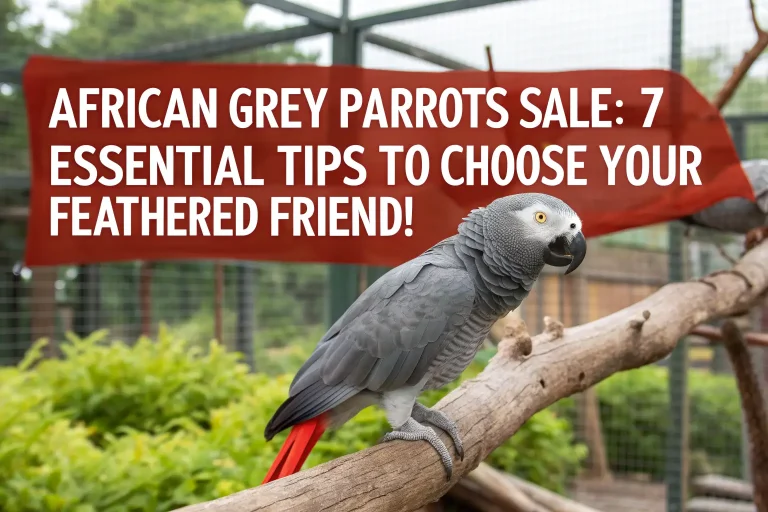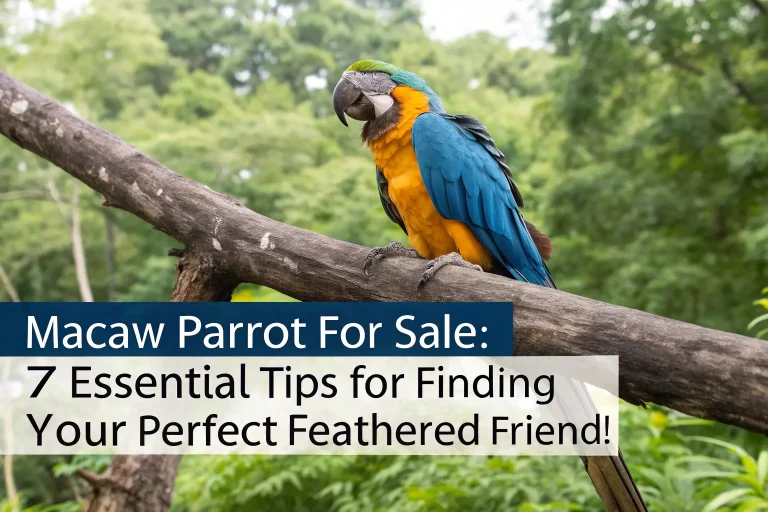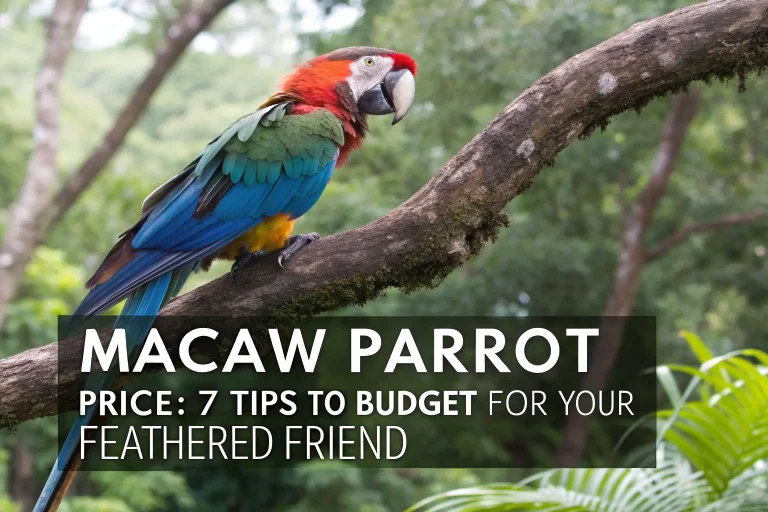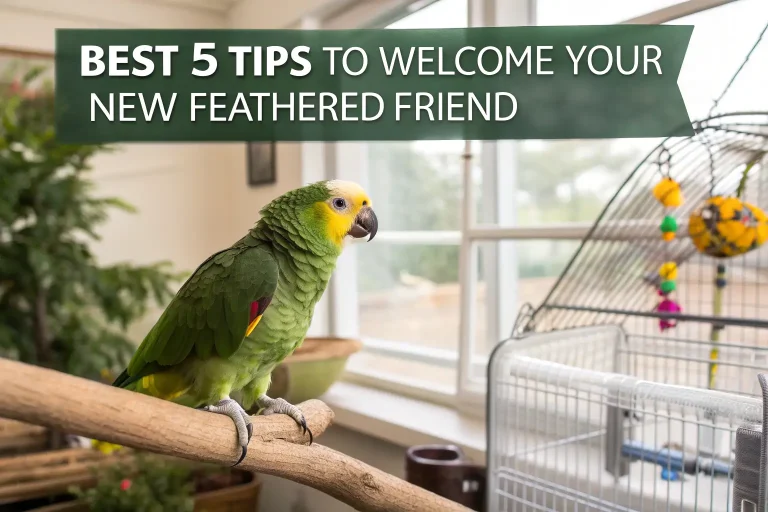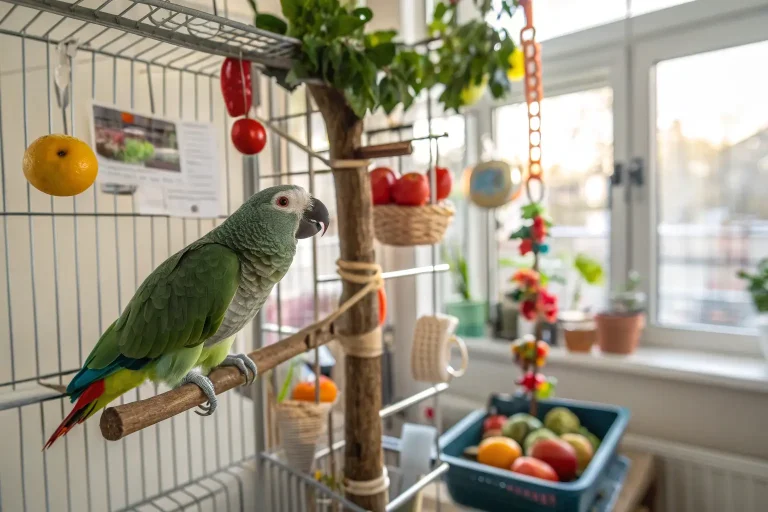Eclectus Parrot Price: 7 Factors That Affect Costs
Are you considering adding a vibrant splash of color to your life with an eclectus parrot? These striking birds, known for their intelligent personalities and remarkable sexual dimorphism, have become increasingly popular pets. However, before taking the plunge, it’s crucial to understand the eclectus parrot price range and what influences it.
The cost of an eclectus parrot typically ranges from $1,000 to $3,000, but various factors can push this price significantly higher or lower. Understanding these price determinants will help you make an informed decision and budget appropriately for your new feathered friend.
Introduction
The eclectus parrot (Eclectus roratus) stands out in the avian world as one of the most visually striking species. Males sport brilliant emerald green plumage while females display a stunning combination of scarlet and royal blue—a level of sexual dimorphism rare among parrot species.
Understanding the financial commitment involved with an eclectus parrot is essential for prospective owners. These birds can live 30+ years in captivity, making them a long-term investment both emotionally and financially.
Interestingly, eclectus parrots were once thought to be two different species because males and females look so drastically different—a fascinating misconception that wasn’t corrected until the early 20th century!
Species Overview
Scientific Name: Eclectus roratus
Physical Characteristics: Eclectus parrots are medium-large birds, typically measuring 17-20 inches (43-51 cm) in length and weighing between 13-19 ounces (370-540 grams). Their most distinctive feature is their dramatic sexual dimorphism—males are almost entirely bright green with touches of blue and red under their wings, while females display primarily deep red and purple-blue plumage. Both sexes have distinctive candy-corn colored beaks; males have orange-yellow beaks while females have black beaks.
Subspecies: There are nine recognized subspecies of eclectus parrots, each native to different geographic regions across the South Pacific. These subspecies variations significantly impact the eclectus parrot price, with rarer subspecies commanding premium prices:
- Solomon Islands Eclectus (E. r. solomonensis)
- Vosmaeri Eclectus (E. r. vosmaeri)
- Grand Eclectus (E. r. roratus)
- Red-sided Eclectus (E. r. polychloros)
- Biaki Eclectus (E. r. biaki)
- Blue-bellied Eclectus (E. r. westermani)
- Aru Islands Eclectus (E. r. aruensis)
- Biak Eclectus (E. r. cornelia)
- New Guinea Eclectus (E. r. macgillivrayi)
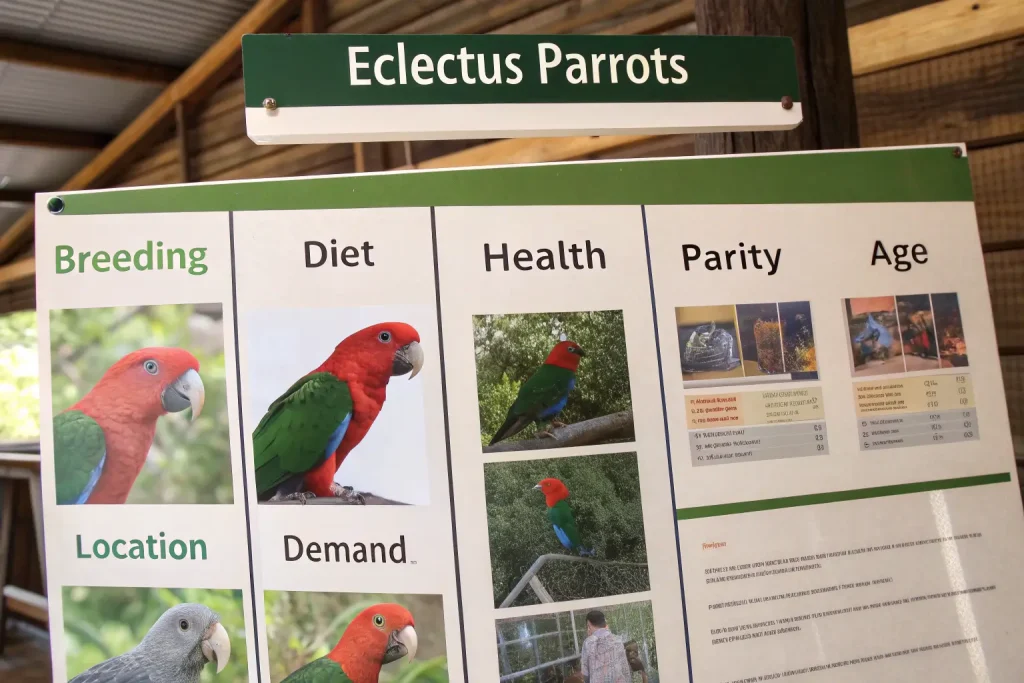
Habitat and Distribution
Natural Habitat: In the wild, eclectus parrots inhabit tropical rainforests, preferring the canopy level where they forage for fruits, nuts, berries, and blossoms. They typically nest in large hollow trees high above the ground.
Geographic Range: These magnificent birds are distributed across northeastern Australia, the Solomon Islands, Sumba, New Guinea, and the Moluccas (Maluku Islands). Each region hosts different subspecies, contributing to the variety in appearance and the variance in eclectus parrot price in the pet trade.
Adaptations: Eclectus parrots have evolved specialized digestive systems to process their primarily fruit-based diet. Their relatively short digestive tracts allow them to efficiently extract nutrients from fruits and quickly pass seeds, making them important seed dispersers in their native ecosystems. These biological adaptations require special dietary consideration in captivity, which can affect the long-term cost of ownership.
Diet and Feeding Habits
What It Eats: In the wild, eclectus parrots primarily consume fruits, nuts, leaf buds, blossoms, seeds, and some insects. Their natural diet is very high in fruits (especially figs) and relatively low in seeds compared to many other parrot species.
Hunting or Foraging Behavior: Eclectus parrots spend much of their day foraging in the rainforest canopy. They use their strong beaks to crack open nuts and seeds and to peel fruits. Their foraging behavior is dynamic and engaging, which translates to a need for mental stimulation in captivity.
Dietary Needs: The unique dietary requirements of eclectus parrots can influence the ongoing cost of ownership. These birds require a diet consisting of about 80% fresh fruits and vegetables, with the remainder made up of high-quality pellets and limited nuts and seeds. Their specialized diet can cost $75-150 monthly, significantly higher than for seed-eating birds.
Behavior and Social Structure
Social Behavior: In the wild, eclectus parrots typically live in pairs or small family groups but may gather in larger flocks at feeding sites. They maintain loose colonies, with multiple pairs nesting in the same area but in separate tree hollows.
Communication: These intelligent birds communicate through a variety of calls ranging from soft whistles to loud screeches. They’re known for their remarkable ability to mimic human speech and household sounds, making them highly interactive pets.
Mating and Reproduction: Eclectus parrots form monogamous pair bonds. Females control the nesting hollow and may mate with multiple males who bring them food. They typically lay 2-3 eggs per clutch, which the female incubates for approximately 28-30 days. The breeding capacity and success rate of eclectus parrots directly influence the eclectus parrot price in the pet market.
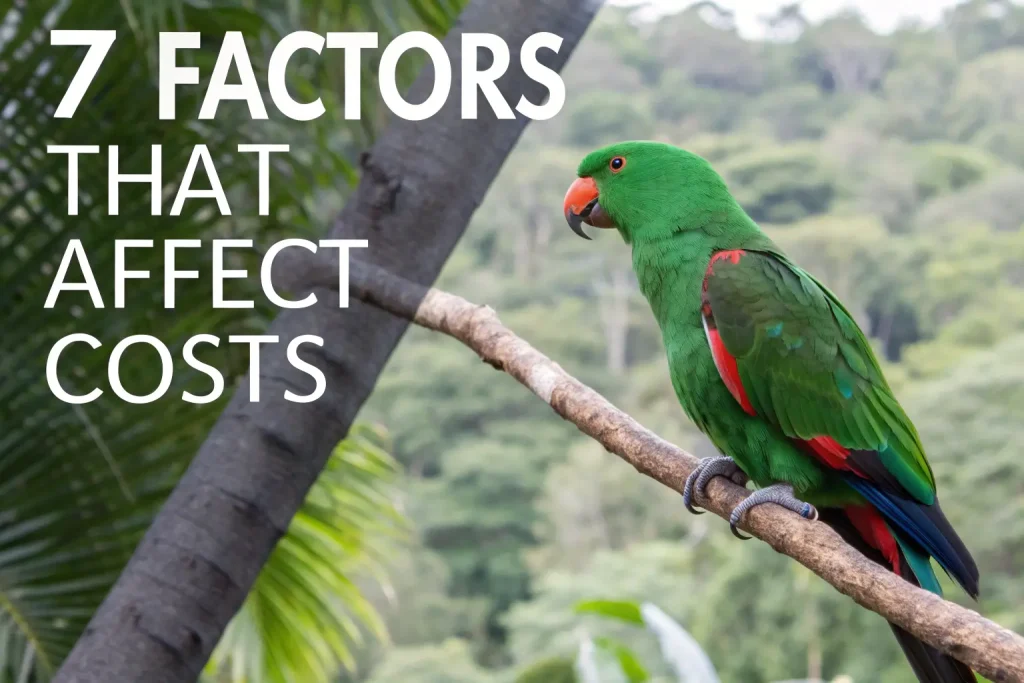
7 Factors That Affect Eclectus Parrot Price
1. Age of the Bird
The age of an eclectus parrot significantly impacts its price:
- Babies (Unweaned): $1,000-$1,500
- Juveniles (Weaned, 4-6 months): $1,200-$2,000
- Young Adults (6 months-2 years): $1,500-$2,500
- Mature Adults (2+ years): $1,200-$2,200
- Senior Birds (15+ years): $800-$1,500
Hand-raised babies generally command higher prices because they typically bond better with humans. However, they require experienced owners who can complete the weaning process properly.
2. Subspecies and Color Variations
The eclectus parrot price varies significantly based on the subspecies and color intensity:
- Solomon Island Eclectus: $1,000-$1,800 (Most common in captivity)
- Vosmaeri Eclectus: $1,500-$2,500
- Red-sided Eclectus: $1,800-$2,800
- Grand Eclectus: $2,000-$3,000
- Rare Subspecies (Biaki, Blue-bellied): $2,500-$4,000+
Birds with exceptionally vibrant coloration or rare genetic traits may command premium prices within their subspecies category.
3. Gender
Unlike many bird species where males are typically more colorful and expensive, with eclectus parrots, females often have a higher price tag:
- Male Eclectus: $1,000-$2,000
- Female Eclectus: $1,200-$2,500
This price difference reflects both breeding potential and the fact that females are often considered more challenging to socialize properly due to their more independent nature.
4. Breeder Reputation and Location
The source of your eclectus parrot significantly influences its price:
- Pet Stores: $1,200-$2,500 (Often more expensive with less background information)
- Established Breeders: $1,000-$3,000 (Price varies based on reputation and breeding program quality)
- Rescue Organizations: $500-$1,500 (Potentially lower cost but may have behavioral challenges)
Geographical location also affects pricing:
- Metropolitan areas typically have higher prices due to increased operating costs and demand
- Prices can vary by up to 30% between different regions of the United States
5. Training and Socialization Level
An eclectus parrot’s behavioral training and socialization significantly impact its value:
- Untrained Birds: Base price
- Basic Training (Step-up, cage-trained): +$200-$500
- Advanced Training (Harness trained, commands, extensive vocabulary): +$500-$1,000
Well-socialized birds that interact positively with multiple people command higher prices than birds that bond with only one person or show fear responses.
6. Health History and Genetic Testing
The health status and genetic background of an eclectus parrot play crucial roles in determining its price:
- No Health Testing: Base price
- Basic Health Screening: +$100-$300
- Comprehensive Health Testing (Including DNA tests for common genetic issues): +$300-$600
Birds with documented lineage from disease-free bloodlines command premium prices, as they’re less likely to develop hereditary conditions like Psittacine Beak and Feather Disease (PBFD).
7. Additional Inclusions
Many sellers increase the eclectus parrot price by bundling additional items:
- Basic Package (Bird only): Base price
- Standard Package (Bird with cage and starter supplies): +$200-$500
- Premium Package (Bird with large cage, toys, food, perches, and training sessions): +$500-$1,000
While these packages may seem expensive initially, they often represent good value compared to purchasing items separately.
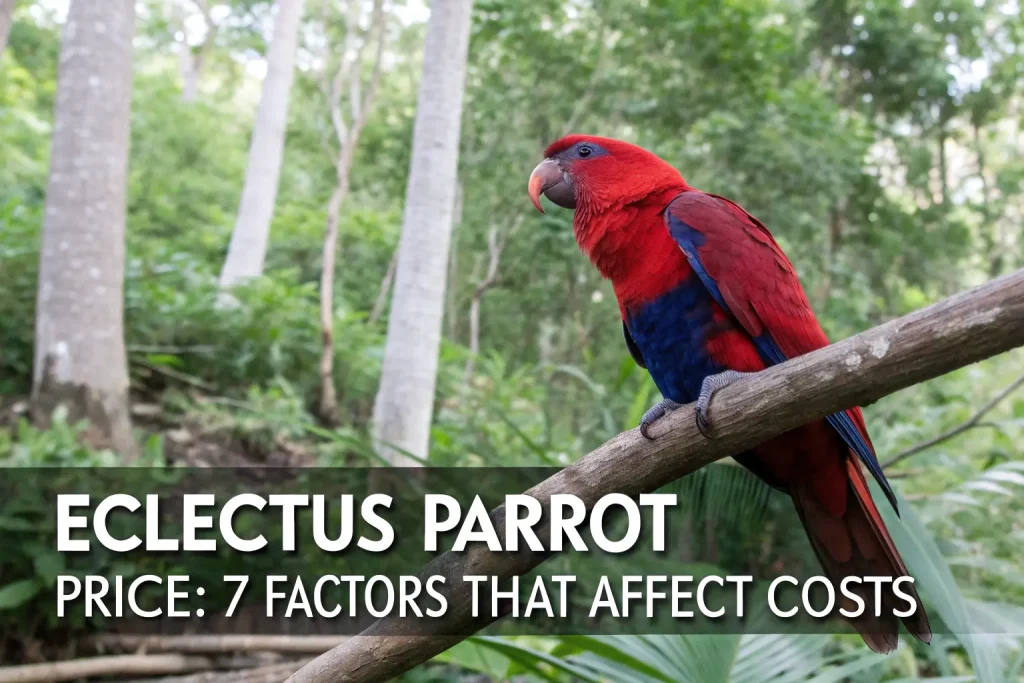
Conservation Status
Endangerment Level: The eclectus parrot is listed as Least Concern on the IUCN Red List. However, certain subspecies face much greater threats and are becoming increasingly rare in the wild.
Threats: The primary threats to wild eclectus populations include:
- Habitat loss due to deforestation
- Illegal trapping for the pet trade
- Hunting for feathers and meat in some regions
Conservation Efforts: All eclectus parrots are listed on CITES Appendix II, regulating international trade. Various conservation organizations monitor wild populations, particularly the rarer subspecies. Responsible breeding programs help reduce pressure on wild populations while meeting pet market demands.
Interesting Facts
Eclectus parrots have unique digestive systems specialized for their fruit-heavy diet, which can make them more prone to certain nutritional disorders in captivity.
Female eclectus often display dominant behavior and may manage multiple male partners who bring them food—a rare example of polyandrous behavior in birds.
The dramatic sexual dimorphism (color difference between males and females) confused scientists for years. Until the 1900s, males and females were classified as different species!
Eclectus parrots have specialized feathers that reflect ultraviolet light, making them appear even more vibrant to other birds who can see this spectrum.
Unlike many parrots who are destructive chewers, eclectus tend to be relatively gentle with their toys and surroundings.
Tips for Caring for Eclectus Parrots
Habitat Requirements:
- Minimum cage size: 36″ W × 24″ D × 48″ H (larger is better)
- Temperature: 65-80°F (18-27°C)
- Humidity: 50-70% (higher than average household humidity)
- Setup cost: $500-$1,200 for appropriate cage and accessories
Diet:
- 80% fresh fruits and vegetables
- 15% high-quality formulated pellets
- 5% nuts, seeds, and healthy treats
- Monthly food cost: $75-$150
Health Considerations:
- Prone to feather picking if diet or environment is inadequate
- Susceptible to calcium deficiencies and hypovitaminosis A
- Annual vet checks recommended ($100-$200)
- Emergency medical fund recommended: $1,500-$2,000
Social Needs:
- Require 3-4 hours of daily interaction
- Benefit from foraging toys and mental stimulation
- May develop behavioral issues if socially neglected
Role in the Ecosystem
Ecological Importance: In their natural habitat, eclectus parrots play a vital role as seed dispersers. Their fruit-heavy diet means they consume and transport seeds throughout the rainforest, contributing to forest regeneration and plant diversity.
Impact of Decline: If eclectus populations were to decline significantly, there could be cascading effects on rainforest ecosystems:
- Reduced seed dispersal for certain plant species
- Changes in forest composition over time
- Potential loss of specialized plant species that depend on large-bodied birds for effective seed dispersal
The ecological role of these birds underscores the importance of conservation efforts and responsible breeding practices in the pet trade.
Conclusion
When considering the eclectus parrot price, prospective owners must look beyond the initial purchase cost. These magnificent birds represent a significant long-term investment, with expenses spanning decades of ownership.
The initial purchase price of $1,000-$3,000 is just the beginning. First-year costs including proper housing, diet, toys, and veterinary care can add $1,500-$3,000. Annual maintenance expenses typically range from $700-$1,500 depending on diet quality and healthcare needs.
Before bringing home an eclectus parrot, consider both your financial readiness and lifestyle compatibility with these intelligent, social companions. Their stunning beauty comes with responsibility—proper care requires time, knowledge, and consistent financial resources.
If you’re prepared for the commitment, an eclectus parrot can bring decades of colorful companionship, engaging interaction, and the special bond that comes from sharing your life with one of nature’s most remarkable avian species.
Frequently Asked Questions
How much does an eclectus parrot typically cost?
The average eclectus parrot price ranges from $1,000 to $3,000, depending on factors like age, subspecies, gender, and breeder reputation. Rarer subspecies or birds with special training may cost up to $4,000 or more.
Are female or male eclectus parrots more expensive?
Female eclectus parrots typically cost $200-$500 more than males, with females ranging from $1,200-$2,500 and males from $1,000-$2,000. This price difference reflects both breeding potential and behavioral differences.
Which eclectus subspecies is most affordable?
The Solomon Island eclectus (Eclectus roratus solomonensis) is typically the most affordable subspecies, with prices ranging from $1,000-$1,800. They’re also the most commonly available subspecies in the North American pet trade.
How much should I budget annually for an eclectus parrot?
Plan to budget $700-$1,500 annually for an eclectus parrot’s ongoing care. This includes approximately $75-$150 monthly for their specialized diet, plus regular veterinary care, toys, and supplies. Their fruit-heavy diet makes them more expensive to feed than seed-eating birds.
Does buying from a breeder versus a pet store affect the price?
Yes, purchasing directly from reputable breeders often provides better value, with prices typically 10-20% lower than pet stores for birds of comparable quality. Breeders also generally provide more comprehensive information about the bird’s history, temperament, and health.
How does the bird’s age affect its price?
Weaned juveniles (4-8 months old) typically command the highest prices. Unweaned babies may be less expensive but require experienced handlers. Adult birds (2+ years) are often priced 20-30% lower than juveniles, while senior birds (15+ years) may be available at significant discounts.
Are there additional costs I should consider beyond the purchase price?
Absolutely. Beyond the initial eclectus parrot price, budget for: a spacious cage ($300-$800), toys and perches ($150-$300 initially, then $200-$400 annually), specialized diet ($75-$150 monthly), veterinary care ($200-$500 annually), and potential emergency medical expenses ($1,500+ in reserve).

